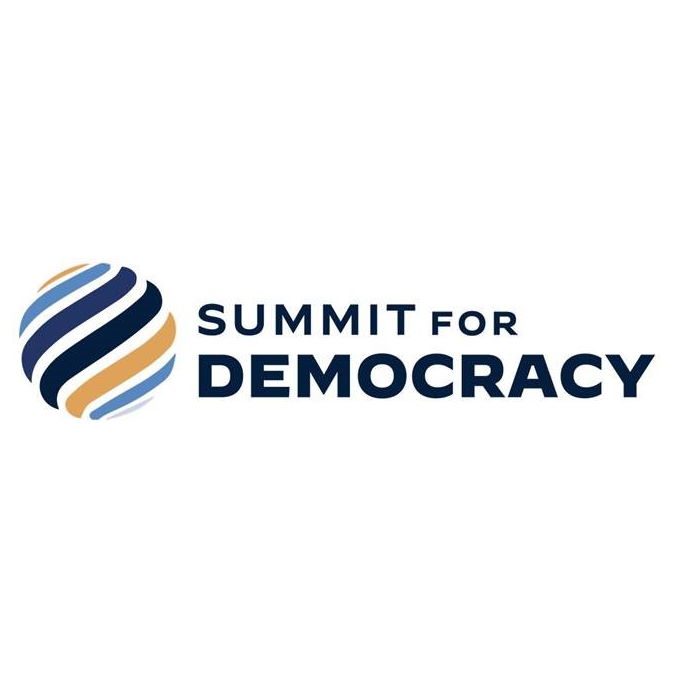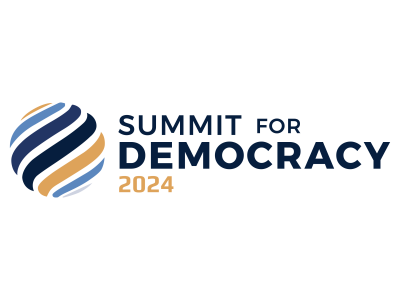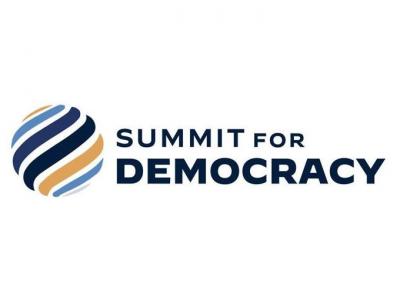Summit for Democracy
Cohort on Deliberative Democracy & Citizens’ Assembly
"Democracy doesn’t happen by accident. We have to renew it with each generation."
What is the Summit for Democracy?
On December 9-10, 2021, President Biden hosted the first of two Summits for Democracy, a global gathering of 100 government leaders, hundreds of members of civil society, and the business community, to discuss the challenges and opportunities facing democracies in the 21st century. At the Summit, the U.S. Government announced that the time between leaders’ gatherings would constitute a Year of Action, during which the United States would work with partners to advance the commitments they made to one another to strengthen democracy, promote respect for human rights, and counter corruption and authoritarianism.
Throughout the Year of Action, the U.S. Government will therefore encourage structured dialogue and action among governments and other stakeholders to advance commitments and initiatives announced by world leaders, and to report back on their progress at the second Summit.
To help facilitate progress and advance the Summit’s themes, the Department of State, the U.S. Agency for International Development (USAID), and other interagency partners will support a series of consultative processes that aim to:
- support governments in making verifiable progress on their commitments;
- institutionalize Summit themes and commitments into existing platforms;
- craft a Summit outcome document; and
- develop an inclusive agenda for the second Summit.
The United States invited the European Commission and Ireland to be partners in its 2023 Summit for Democracy as the “Deliberative Democracy & Citizens Assemblies Cohort”. This video features both the European Union's and Ireland's work on promoting deliberative democracy initiatives while also making mention of the significant efforts in the same vein taking place elsewhere in the world. The example from elsewhere they highlighted features the All Hands On documentary "Teaching Power". It shows how Malawi used citizens' assemblies to engage everyday people in improving local government spending.
What can you do?
1. Commit to the 2022 Declaration on Deliberative Democracy and Citizens’ Assemblies.
2. Create a Global ‘Marshall Plan for Democracy’ to empower countries with new or fragile democratic institutions by supporting and funding deliberative projects.
3. Support and advocate for the use of supranational democratic development funds being used for Citizens’ Assemblies as a highly promising means of countering polarisation, misinformation, and low public trust.
4. Support and participate in a Summit for Democracy Global Deliberaton on Democracy giving citizens a significant voice at this and future Summits.
5. Support an existing, trusted global institution, such as the OECD or UN Democracy Fund to act as a clearinghouse of project trials and their success, so nations have access to a global ‘What Works for Democracy’.
6. Host an informational workshop for elected representatives to ensure they are informed on the array of democratic innovations which are proving effective, and to generate an understanding of the critical success factors for their use.
7. Join a Senior Ministerial Co-ordination Group for bi-annual calls to remain informed on international major project experiences using Citizens’ Assemblies.
8. Commit to the principles and guidelines listed in the OECD ‘Deliberative Wave’ advice as representing a standard of quality for more meaningful community engagement.
9. Conduct a national-level Citizens’ Assembly.
10. Establish a National Democracy Action Fund to be used for democratic innovation projects at regional and local levels where budgets are otherwise unavailable or insufficient.
11. Create an ‘Office of Citizen Deliberation’ as an institution providing centralised and high-quality process design and operating capability across the public sector.
12. Institutionalise a formal structure for citizen deliberation within the parliamentary process. E.g. through integration with Committees
| Attachment | Size |
|---|---|
| Declaration of the Cohort for Deliberative Democracy and Citizens’ Assemblies | 407.53 KB |
| Cohort Deliverables Summary | 364.54 KB |
Recording of the launch event of the Deliberative Democracy & Citizens' Assemblies Cohort for the Summit for Democracy, that took place on the 17th January 2023, with the participation of:
- Dubravka Šuica, European Commission Vice-President
- Art O'Leary, Electoral Commission at the Irish government
- Iain Walker, NewDemocracy Foundation
- Graham Allen, Citizens’ Convention on UK democracy



